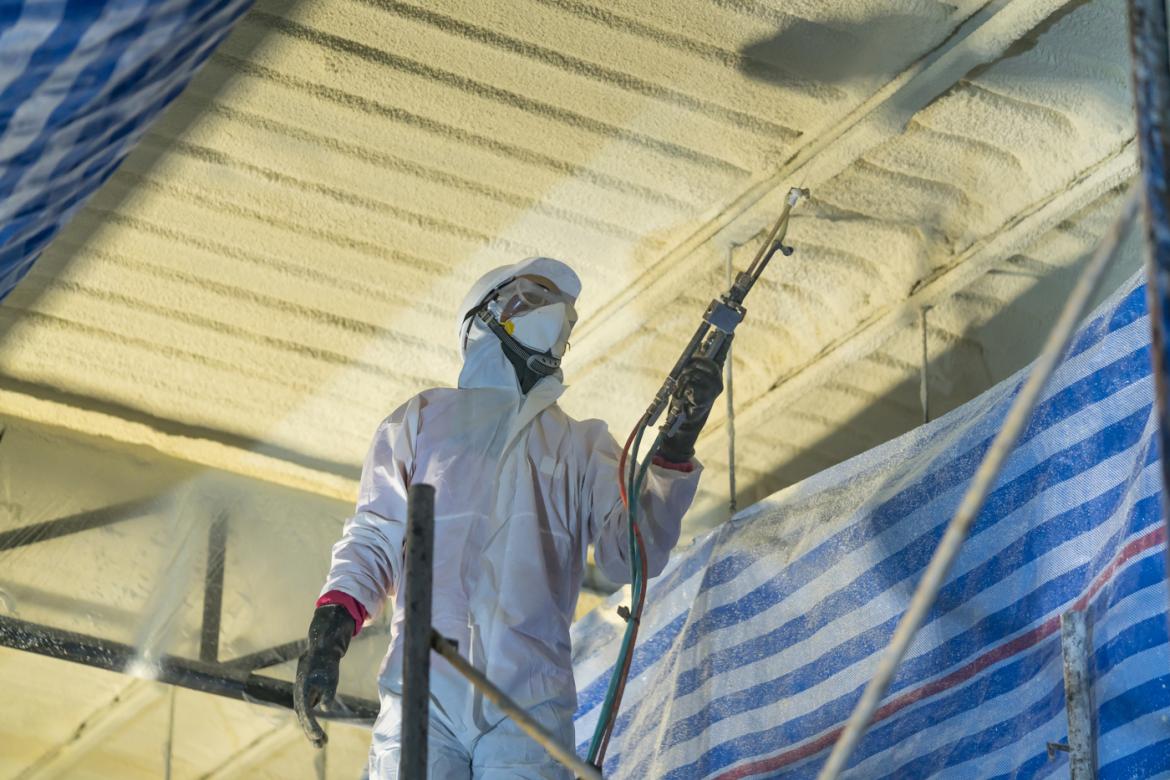What You Need to Know About Insulation and Your Business

With its high R-Value rating, spray-foam is one of the best insulation types used to protect businesses and keep them up to code.
Finding the right insulation product for your business can be a bit daunting. There are various types of insulation, and each kind has specific benefits depending on your needs and goals. But one thing is certain, insulation is required for your business. The benefits or a proper insulation product and installation will create a comfortable working space, decrease your heating/cooling bills, decrease maintenance for your HVAC and roof, and provide optimal noise protection. So, let’s explore the world of insulating products and discover the benefits of using a professional insulation installer in Kelowna.
What Types of Insulation Are Available for your Business?
The four most common insulation types are fibreglass and poly, loose fill (also known as blown-in insulation), spray foam, and thermal acoustic.
- Fibreglass insulation is made of tightly woven glass fibres and sold in rolls or blankets (known as Batts) and is the most widely used type of insulation in the world. Used in attic floors, exterior walls, crawlspaces or basement ceilings, fibreglass is very effective when used in conjunction with poly plastic sealing. It is also an easy-to-install insulating product.
- Loose-fill is also made of fibreglass but is “blown in,” not installed in rolls or batts. Loose-fill is energy efficient and primarily used for insulating hard-to-cover areas like open-air attics and sloped ceilings.
- Spray foam insulation is a very effective insulating product and offers the highest R-Value (see below) per installed square inch. It also provides an airtight seal and barrier. Because of this, spray foam insulation costs more than traditional batt insulation and should always be installed by a professional.
- Thermal acoustic insulation is most commonly used around machines and rooms when heat transfer or sound leakage needs to be minimized. This can include interior walls or around pipes and machine rooms. There are several different materials that you can use for thermal acoustic insulation and your professional insulation installer in Kelowna can determine the most efficient materials for your business.
What is an R-Value?
The “R” in R-Value is a symbol used in the equation that determines how effective a material is at creating a temperature barrier between hot and cold areas. The greater the R-Value, the stronger the barrier, or thermal resistance, of the insulation.
The R-Value of an insulating product is based on its thickness, density, and type of material. It’s measured in inches of thickness (based on the equation mentioned above). Luckily, all the math and equations are distilled into a simple number: the R-Value.
R-Values can vary from R-13 (less thermal resistance) up to R-60 (more thermal resistance). Recommended R-Values are based on regional differences, specific rooms or areas to be insulated, and your home or business’s overall requirements.
How R-Values Affect your Business
Energy requirements for BC buildings require that insulation materials meet Building Code regulations. This includes applicable R-Values for walls, ceilings, roofs, and floors.
Knowing which R-Value insulation is required is why you need to use a professional Kelowna insulation company to install your business’ insulation.
To learn more, read 5 Reasons Why You Shouldn’t Overlook Home Insulation.
Save money and make sure your place of business is air-tight and up-to-code with professional insulation and installation services by Okanagan Insulation Services. Contact us for a free, no-obligation quote.